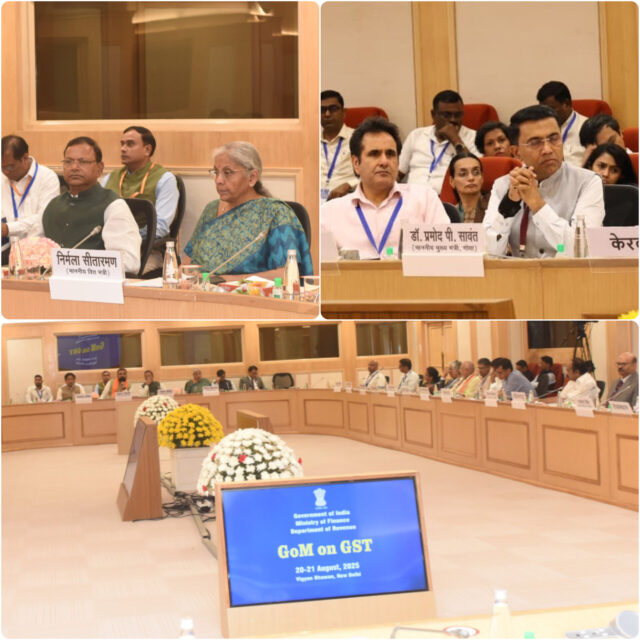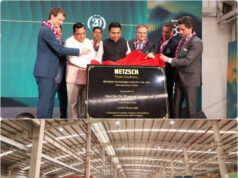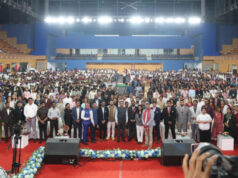Union Minister for Finance and Corporate Affairs Nirmala Sitharaman today addressed the Group of Ministers (GoMs) constituted by the GST Council on Compensation Cess, Health & Life Insurance, and Rate Rationalisation at Vigyan Bhawan, New Delhi. Chief Minister Dr Pramod Sawant also attended the ‘GoM on GST’ meeting.
During the meeting, the Union Finance Minister emphasised that the proposal by the Central Government is with a vision to usher in the next generation of GST reforms in India’s journey towards becoming Atmanirbhar Bharat.
These reforms, proposed by the Central Government to the GoMs, are based on three key pillars:
• Structural reforms: The reforms will correct inverted duty structures to cut input tax credit accumulation and boost domestic value addition, resolve classification issues for simpler compliance and fewer disputes and ensure stability & predictability in GST policy to strengthen industry confidence and long-term planning.
• Rate rationalisation: The rate rationalisation exercise aims at providing greater relief to the common man, farmers, the middle class and MSMEs, while ensuring a simplified, transparent and growth-oriented tax regime.
This would enhance affordability, boost consumption and make essential and aspirational goods more accessible to a wider population.
• Ease of living: The upcoming GST reforms will ensure seamless, tech-driven and time-bound registration, introduce pre-filled returns to reduce errors and mismatches and enable faster, automated refunds, all aimed at simplifying compliance, supporting businesses and enhancing the overall ease of living and doing business.
The Central Government remains committed to building a broad-based consensus with the States in the coming weeks to implement the next generation of GST reforms in the spirit of cooperative federalism.






